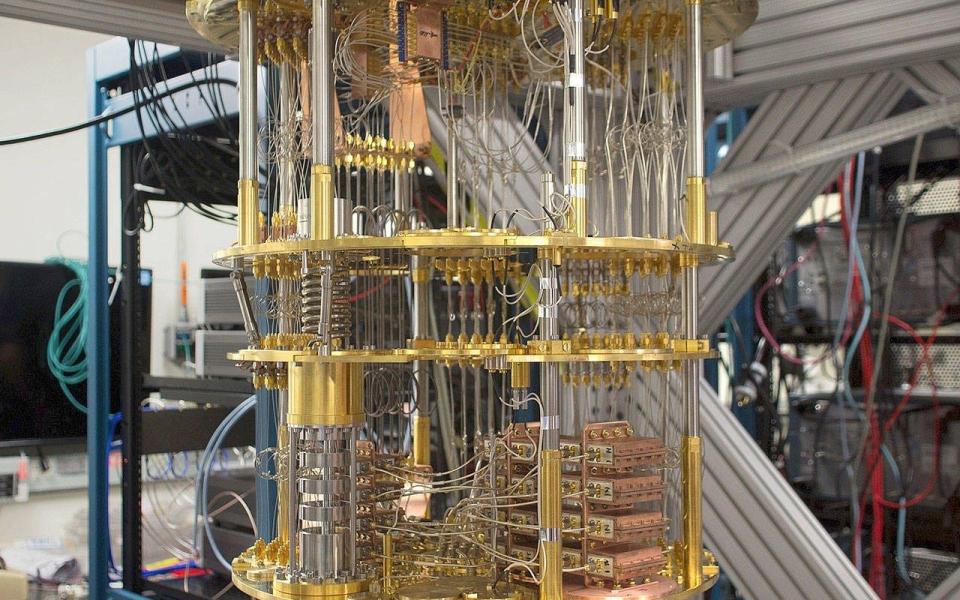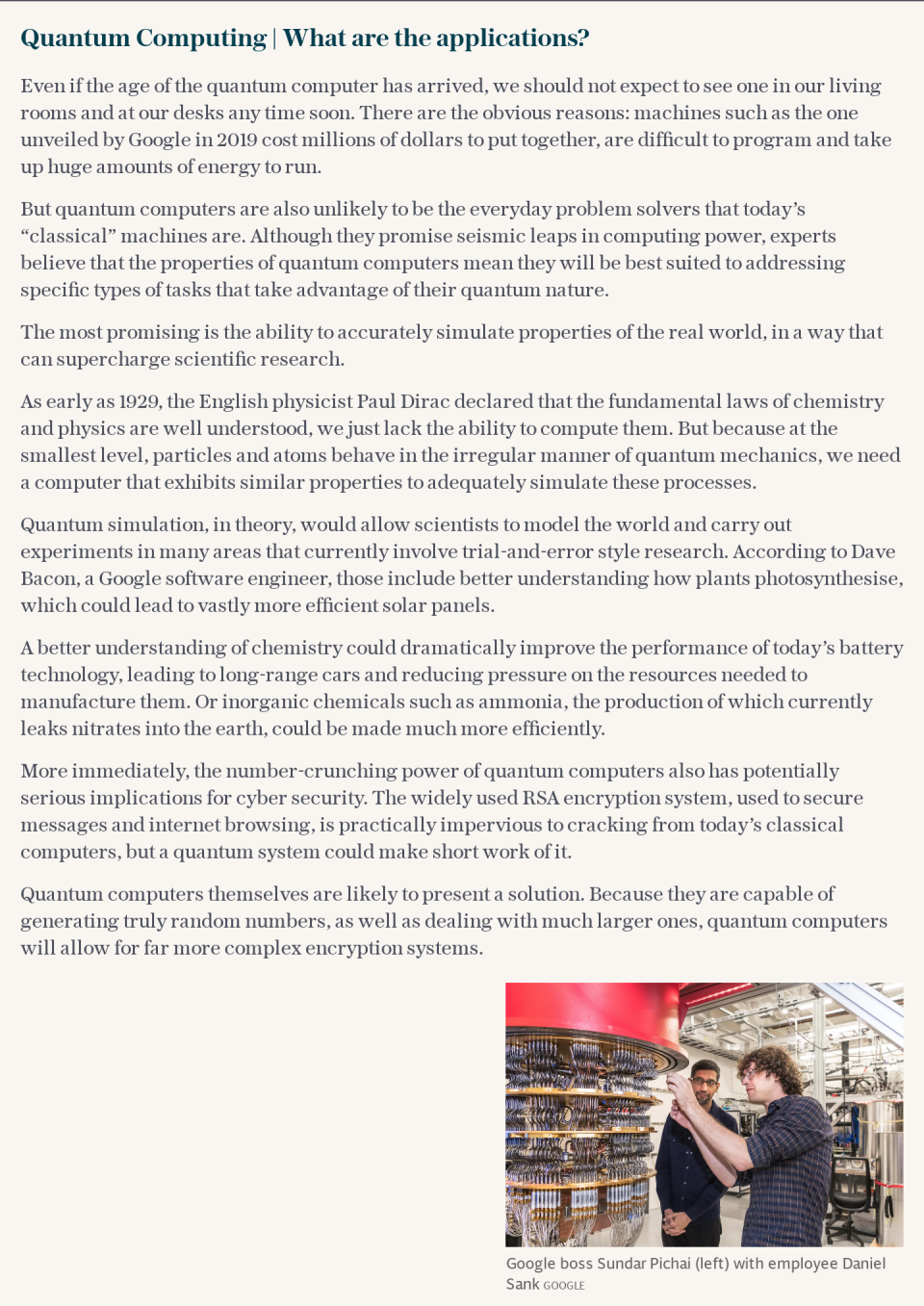Brussels tries to freeze UK out of quantum and space projects

Brussels has moved to freeze British companies and researchers out of major quantum and space research projects, amid fears they could pass on trade secrets to non-EU powers.
The UK negotiated associate membership of the flagship Horizon Europe research programme after Brexit but the European Commission only wants EU members to be able to participate in the sensitive sectors.
The commission said the move, which also affects Israel and Switzerland, was necessary because of the sector’s “global strategic importance”. Quantum involves superfast computers and has uses in security and defence.
The Telegraph understands that Brussels is anxious that intellectual property in the sensitive and highly competitive sector could be passed to rival countries and companies.
An EU diplomat said: “You can’t just put the UK and Switzerland in the same box as China and Iran”.

Most member states are against excluding Britain from the partnerships between universities and companies, which the commission proposal said was needed to “safeguard the Union’s strategic assets, interests, autonomy, or security”.
The countries raising concerns include Germany, Italy, Belgium, Spain, Ireland, Poland, the Netherlands and the Baltic states.
Commission officials were said to be impervious to protests from some member states, which highlighted the need to continue partnering with traditional, trusted allies at a recent meeting to discuss the plans. A further meeting is scheduled for April 19.
European universities were also appalled by the decision.
“The latest proposal by the European Commission to exclude longstanding and trustful partner countries like Switzerland, Israel and the United Kingdom from parts of the research programme is not in the interest of Europe’s research community nor the wider society and could be damaging for the international co-operation,” the Eurotech Universities Alliance wrote in an open letter.
“The commission is pulling the rug from underneath fruitful collaborations that need to stay on the carpet,” the diplomat added.
The hard line position is understood to come from Thierry Breton, the French Internal Market Commissioner.
Brussels is pursuing an initiative called “strategic autonomy”, a push designed to bolster the bloc’s ability to defend itself from competition from the US and China.
Britain is one of more than a dozen fee-paying non-EU countries that expected to be involved thanks to their associate membership of the seven-year Horizon Europe programme, which is expected to begin issuing grants in the coming months.
EU labs and universities also risk losing existing partners. There are up to 20 quantum projects in Israel involving the EU.
